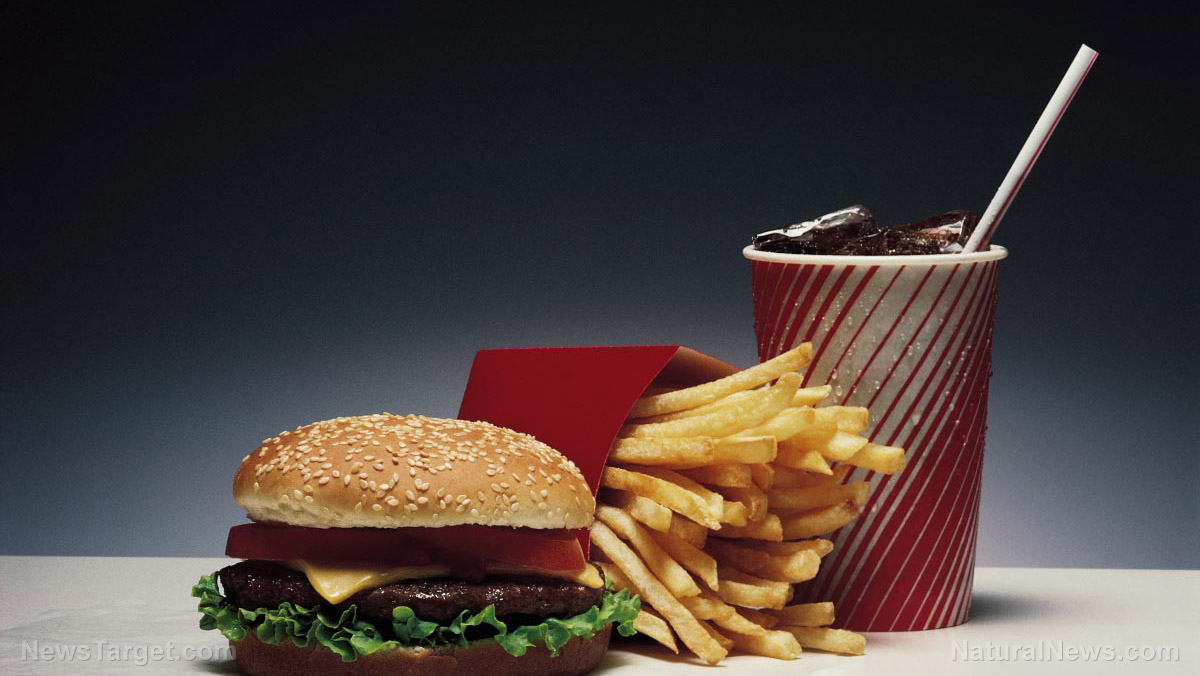Being obese can impair your ability to build muscle after resistance exercise
12/06/2018 / By RJ Jhonson

Obesity is one of the world’s most serious health problems. It is associated with numerous life-threatening health conditions, including heart disease, Type 2 diabetes, and high blood pressure, to name a few. But obesity doesn’t just put your life at risk, it even puts you at a disadvantage. According to research, obesity reduces your ability to build muscle even after strenuous exercise.
Previous studies indicate that obese people do not synthesize protein as well and as efficiently as normal-weight people do. Nicolas Burd, a University of Illinois kinesiology and community health professor, describes the phenomenon as “an obesity-related impairment in building new muscle proteins in the fed state after a weightlifting session.”
To arrive at a concrete comparison, Burd’s team recruited nine obese and nine normal-weight adults who were 20 to 23 years old. Although healthy, none of the participants engaged in a regular exercise program. They weren’t sufficiently active either.
The participants went through a number of assessments that evaluated factors like body composition and glucose intolerance, as well as their ability to engage in a weighted leg extension exercise. To monitor the amino acid levels in their blood and muscles throughout the experiment, the researchers infused them with stable-isotope-labeled phenylalanine. Muscle biopsies were also taken from one leg of each of the participants. (Related: Obesity Causes Increased Risk of Kidney Cancer, Kidney Stones, and Stroke.)
During the experiment, the participants were asked to perform four sets of 10 to 12 repetitions of the resistance exercise using the opposite leg. This is notably more demanding than what is currently recommended during conventional exercise.
Mother Nature's micronutrient secret: Organic Broccoli Sprout Capsules now available, delivering 280mg of high-density nutrition, including the extraordinary "sulforaphane" and "glucosinolate" nutrients found only in cruciferous healing foods. Every lot laboratory tested. See availability here.
Immediately after the workout, the participants needed to consume 170 g of lean ground pork, amounting to about 36 g of protein and 4 g of fat. Around 120 and 300 minutes after the participants consumed the pork, the researchers conducted two other biopsies. Because of this method, the legs that were not exercised served as the controls, allowing the researchers to directly compare how weightlifting affects the muscles’ ability to build new proteins versus a state of non-exercise.
According to the results, obese participants had plasma insulin concentrations that were about 3.2 times higher at baseline. This indicates the presence of whole-body insulin resistance – not surprising considering the link between obesity and the risk for Type 2 diabetes. In terms of work done, Burd says the obese participants had to work harder than those with normal weight.
“Given that obesity is associated with increased muscle mass, but of poorer metabolic quality, the amount of work they could perform per unit of lean muscle mass also was lower than that of their normal-weight peers,” he explains.
Even after both exercise and the consumption of protein-rich food, it’s possible to see differences between the two groups. In particular, the obese individuals showed impairments in their muscle building and repair process. This is a significant factor because both muscle building and muscle repair have long-term implications on metabolic health and overall physical performance. Obese people essentially have to work twice as hard as normal-weight people to get the same benefit from their diet and workout as the latter.
A good solution would be for obese people to exercise more regularly, initially focusing on cardio and aerobic exercises and limiting their consumption of sugar and simple carbohydrates in order to taper off some of their weight. After they have lost a few pounds, it will be easier for the body to build muscle after resistance exercise. Continuing to consume a diet that is largely protein-based and vegetable-based will also benefit obese individuals trying to lose weight.
Learn how to lose weight effectively and naturally at Slender.news.
Sources include:
Tagged Under: building muscle, exercise, fitness, metabolism, muscle repair, obesity, slender




















